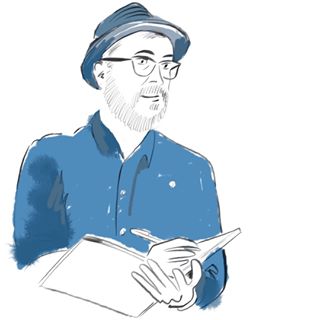Grief in COVIDtimes
When your child dies, people say: I’m so sorry. I can’t imagine.
That’s what the ER doctor in Salt Lake City said. I was like, fuck you doc. *I* can’t imagine. (Also, what are you sorry for? What did you do? Is there something you’re not telling me?)
A week or so later I was out in the world and I was like: fuck all y’all. People on the street, in cars, in shops, chatting and texting and sipping their beverages and going about their lives. The clouds in the sky and the birds in the trees and even the trees themselves - how could everything just go on?
Then coronavirus hit and everyone lost their minds. The world literally stopped. People said they’d never experienced anything like it - this mysterious, disassociated, uncomfortable feeling.
Turns out there’s a word for it. The word is grief.
Welcome, friends. Settle in. There’s no getting over this. Or as LA Mayor Eric Garcetti said the other day: “We are not moving past Covid-19; we are learning to live with it.”
As it is with covid, so it is with grief.
That’s the thing about dealing with a global health emergency during a period of soul-shaking grief: the crisis doesn’t seem so bad. As anxiety has escalated in the world at large, mine has stabilized. Suddenly I’ve got company. Beyond our family and all the people who knew and loved Charlie – suddenly everyone is beside themselves, raw and anxious and weirdly dislocated.
Really, it feels like I was just becoming aware of a terrifying truth about the world when suddenly everyone was forced to confront the same reality.
Mainly: we are mortal, fragile beings and everything we build our lives upon can go in a second. There’s no escaping it - things go sideways, the center will not hold, death and disorder are closer than we ever knew. The safety and security we take for granted to operate in the world is an illusion. Safety can really only be achieved in moments, and even then it is mostly a story we tell ourselves.
Reckoning with this truth makes us crazy. These are intense, insane, heightened, upsetting, unsettling,traumatizing, historic, spooky, sad times. We feel fundamentally unsafe. Everyone - literally everyone, even those who claim everyone else is overreacting - has been forced to respond to a mutating biological force that upsets the expected order of things, busts through barriers, and kills. Death is crashing over countries. It’s passing through our bodies in tiny spiked balls, attaching to airways, suffocating the ill and elderly and poor and plenty of others besides.
The question for all of us is clear: what do we do with this awful truth? How do we keep moving forward knowing the ground beneath our feet is so shaky, that every step forward moves us deeper into the abyss?
A lot of us don’t do so well. Many spin out in anxiety and worry, holing up in hidey holes of isolation and inaction. Others are in full denial, pretending nothing has actually changed and if we just plow forward everything will return to “normal.”
But all around us, you can see others discover deep reserves of resiliency. They’ve found ways to help, to make use of what they have, to appreciate their loved ones. They’ve awoken to disparities previously treated as rhetorical social “issues.” They’ve at last embraced mutual aid, paid leave, essential work.
Right after Charlie died I felt a strong resistance toward anything that felt even a little bit like a silver lining. I refused to entertain any suggestion of a “growth opportunity” or “life lesson.” His death was a tragedy and it made no sense and nothing good would come from it. Anything beyond that felt like a betrayal.
But as the months and weeks have gone on - today is day 145 AC - I am sensing the arrival of another, equally foundational but less terrifying set of truths. I felt it in the first days of grief, learning that on the other side of the world, 172 people had died in a Syrian airliner crash - I was struck by how awful it must be for all those families, how hard it is to lose someone with such uncertainty. And then I felt it with the helicopter crash that killed Kobe Bryant and eight others, how agonizing it would be to lose someone with so much attention from strangers. And again with the news of the first coronavirus fatalities, isolated in crowded ICUs, separated from their loved ones, suffocating and terrified.
And there it was, an unintended result of unimaginable loss: an expansion of empathy, some small growth in my capacity for compassion.
I now look at these losses and can say, really for the first time: I am so sorry; I can imagine.
Next entry: Blackout Tuesday
Previous entry: 100 AC
 on Facebook
on Facebook

Comments